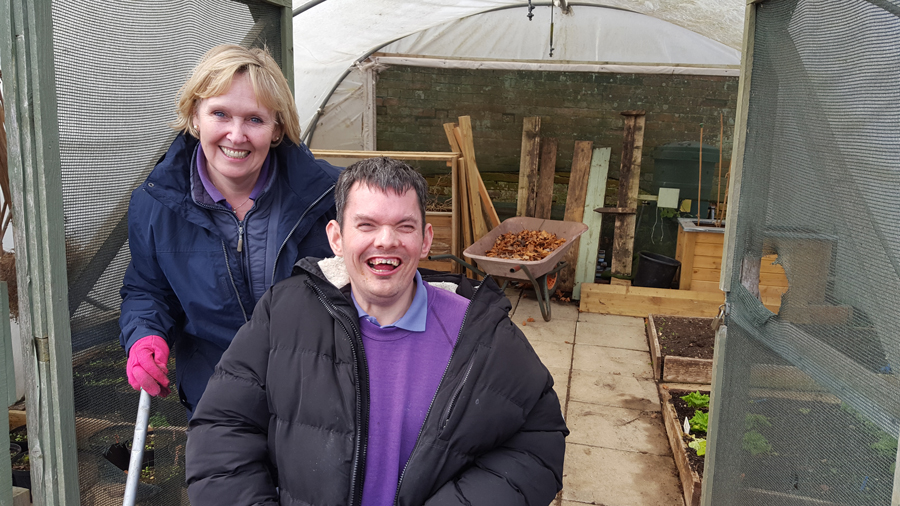Volunteers needed for gardening charity Thrive
What could be better than getting stuck in to sweeping leaves, clearing paths and tidying the garden ready for spring, especially if you are feeling sluggish after an over-indulgent festive season.
Gardening therapy charity, Thrive, points out that volunteering outdoors in the garden could boost your mental health and keep you fit and healthy and the good news is that they are looking for more people to come and help at its regional centres in Reading, London and Birmingham.
Last year, the University of Essex and The Wildlife Trusts published a report – Volunteering: A Natural Health Service – on how volunteering in a nature-rich environment impacted positively on people’s health and wellbeing.
The findings were particularly important for people who live with mental health conditions as research showed that nature volunteering had the most significant impact on those with low levels of mental weelbeing at the start of the project.
Alyson Chorley, for Thrive, said: “With the natural environment making headlines for good reasons we hope that people will think about getting out and about more, and even seek out nature volunteering opportunities which is a great way to keep fit and healthy, make new friends, learn new skills and generally feel good about themselves.”
Garden volunteers at all Thrive centres work alongside client gardeners, other volunteers and a horticultural therapist doing tasks such as watering, digging, hoeing, mowing, pruning, watching out for the Health and Safety of those you are working with and helping clear and put away tools.
Tina (pictured above with Anthony) has been volunteering with Thrive for more than four years and loves it. She found Thrive through a national volunteering website and as she wanted to keep herself busy after she retired and enjoyed gardening she decided to volunteer. Initially, the volunteering position was in the office but she was happy with that because she had office skills from being a PA: “But as soon as I got chatting with the lady at Thrive, who interviews volunteers, she suggested volunteering in the garden – I am so glad I did!”
Tina admits it was a bit daunting at first, knowing what to say to some of the client gardeners, many of whom have learning difficulties, may be vulnerable or have health issues, but volunteers soon learn how to get gain their trust and help them progress.
“I was then surprised at how much I started getting out of coming to Thrive. I began to really look forward to my day at Thrive every week and it is such a great feeling being able to do something that I want to do, rather than have to do,” added Tina.
Horticultural therapists plan everything that goes on during the day, so volunteers get to listen and talk to the client gardeners while gardening and helping them achieve something they might not have thought possible.
Garden volunteers at all Thrive centres work alongside client gardeners, other volunteers and a horticultural therapist doing tasks such as watering, digging, hoeing, mowing, pruning, watching out for the Health and Safety of those you are working with and helping clear and put away tools.
Volunteers don’t have to be garden experts to volunteer, but some understanding of basic gardening skills would be welcome, as would any experience of working with people who have a disability or suffers ill health.
Get in touch via www.thrive.org.uk or phone 0118 988 5688 to find out more.


